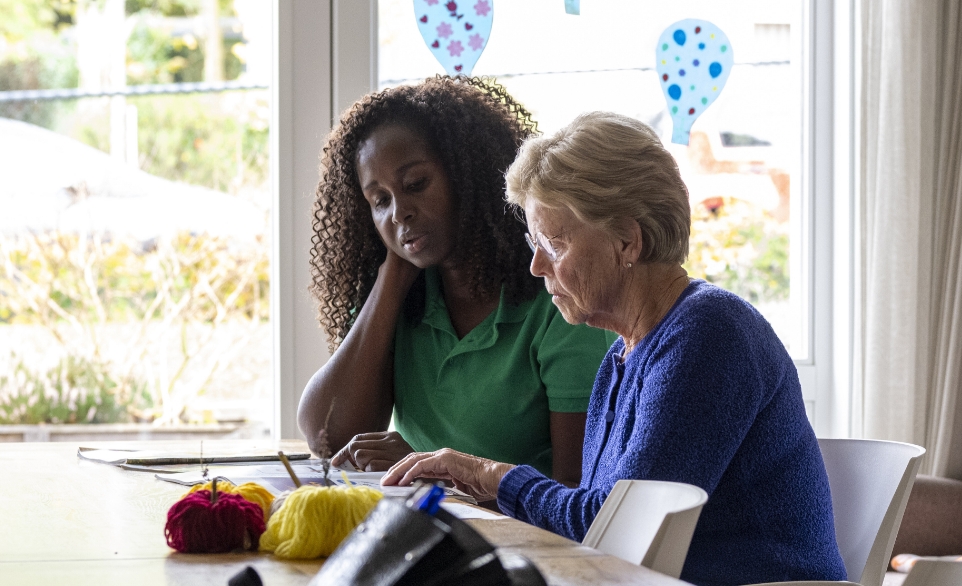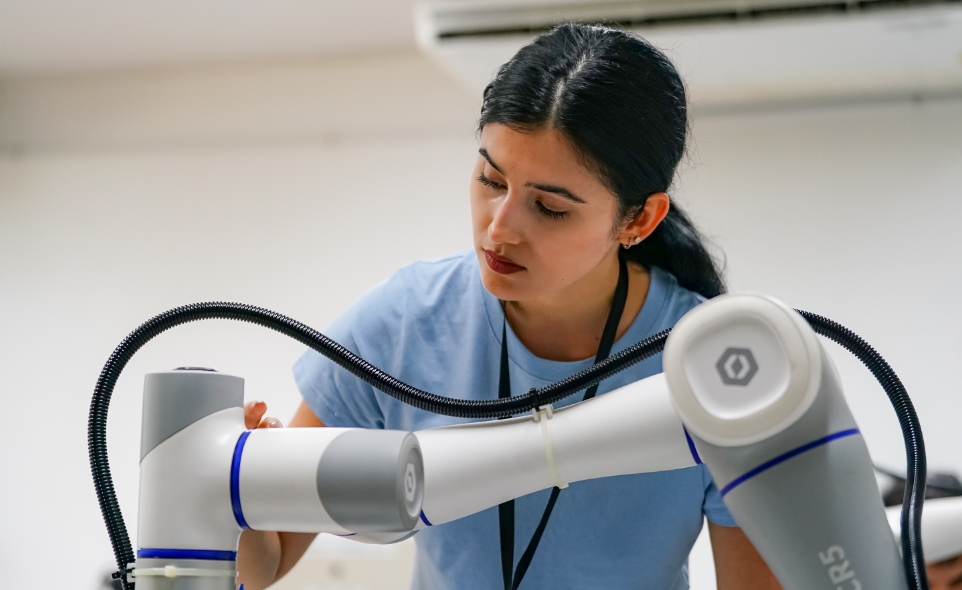
As AI continues to make its way into healthcare, social care, and business operations, a big question is beginning to surface—one that cuts deeper than functionality or efficiency:
Can algorithms understand empathy? And if not—should they be allowed to make decisions about people’s lives?
This question sits at the heart of the ethical AI debate. And for care providers, it’s more than a philosophical musing. It’s a practical, moral, and strategic consideration that affects how we support the most vulnerable members of our society.
At Big Sister, we champion the power of technology—but never at the expense of humanity. As we continue to explore digital transformation, this blog tackles what ethical AI looks like in social care and why empathy must remain non-negotiable in every tech solution we use.
What Do We Mean by “Ethical AI”?
Ethical AI refers to the responsible development, use, and governance of artificial intelligence. It ensures that algorithms:
- Respect human rights
- Are free from bias and discrimination
- Operate transparently
- Are accountable to humans
- Support—rather than harm—wellbeing
But in care, ethical AI must go further. It must align with the core values of compassion, dignity, and person-centred care.
After all, we’re not talking about AI being used to reorder stock or predict weather. We’re talking about AI involved in decisions that affect real people: where they live, how they’re treated, whether they’re safe.
Can AI Feel? No. But It Can Be Taught to Consider
Let’s clarify one thing: AI cannot feel empathy.
It doesn’t have emotions, experiences, or consciousness. But it can be trained to recognise indicators of human emotion—such as facial expressions, tone of voice, behaviour patterns, or language cues—and respond accordingly.
This is where things get tricky. Because AI may be acting empathetic, but it’s not being empathetic.
The difference matters. Empathy in a care setting isn’t just about responding to data—it’s about reading between the lines, adapting in real-time, and holding space for emotion in a way that algorithms can’t truly replicate.
So, can AI understand empathy? No.
But can it be programmed to support empathetic care? Yes—and that’s where its value lies.
Real-World Examples of Ethical AI in Care
Let’s look at some practical ways ethical AI is showing up in the care sector:
-
Predicting Decline Without Creating Panic
AI systems that flag changes in a service user’s mobility or mental health are incredibly helpful. But ethical AI ensures that alerts are:
- Shared with the right people
- Framed constructively
- Supported by human follow-up
This avoids unnecessary worry and ensures people remain at the centre of decision-making.
-
Supporting—Not Replacing—Difficult Conversations
Some AI tools assist carers in planning sensitive discussions, like end-of-life preferences or safeguarding concerns. These tools offer prompts and frameworks but leave the conversation to a trained professional. That’s ethical AI in action: guidance, not dominance.
-
Reducing Bias in Recruitment
In staffing platforms, AI can help reduce unconscious bias by focusing on skills and experience rather than gender, age, or ethnicity. But only when the algorithm itself has been audited for bias—a crucial step in ethical implementation.
What Happens When AI Isn’t Ethical?
Without proper checks, AI can:
- Misinterpret behaviours in neurodivergent individuals
- Discriminate based on data inputs that reflect historical inequalities
- Prioritise efficiency over empathy
- Create a sense of distance or surveillance in service delivery
In one reported case, an AI system flagged a care recipient for “non-cooperation” based on erratic movement. But the individual had Parkinson’s disease. A human carer would’ve recognised this immediately.
This is why oversight and understanding are vital. AI must not be given unchecked authority over people’s lives.
How to Implement Ethical AI in Your Care Business
Whether you’re just starting out with digital tools or actively rolling out AI systems, here are five practical steps to ensure your approach is ethical:
-
Involve Humans in All Critical Decisions
AI can inform, but it shouldn’t decide. Final say must rest with a trained, empathetic human being—especially in matters of safeguarding, healthcare, and wellbeing.
-
Audit Your Data Sources
Ethical AI is only as good as the data it learns from. Make sure your data is up to date, inclusive, and free from historical biases.
-
Be Transparent with Staff and Service Users
People deserve to know when AI is being used, how it works, and what safeguards are in place. This builds trust and reduces fear.
-
Train Your Team on Empathy-First Tech Use
Just because AI suggests something doesn’t mean it’s right. Staff need training on when to trust it, when to question it, and how to blend human insight with tech input.
-
Choose Partners Who Put Ethics First
Don’t just look at features when selecting tech. Ask:
- Who built this system?
- What values guided its design?
- How is user data protected?
- What human oversight is built in?
At Big Sister, we help care businesses ask the right questions before adopting new tech—ensuring that your digital transformation is as ethical as it is effective.
AI and Ethical Bid Writing
The rise of AI isn’t just changing care delivery—it’s changing how we win contracts, too.
Many businesses now use AI-powered platforms to help with proposal drafting, compliance checks, and layout design. But here’s the key: ethics still matter here, too.
That’s why our Bid Writing and Design Services combine AI tools with:
- Human storytelling
- Cultural awareness
- Accessibility compliance
- Sector-specific insight
- Social value alignment
We use AI to accelerate the process—not to replace thoughtful, human-led writing that truly connects with evaluators.
Your bid isn’t just about being fast—it’s about being real. Ethical AI helps us deliver both.
Watch: Digital Healthcare: AI & Beyond
Want to dive deeper into this discussion?
Check out our YouTube playlist: Digital Healthcare: AI & Beyond
This series explores:
- How to adopt AI responsibly
- Where ethical challenges arise
- How to balance tech and trust in the care sector
- What forward-thinking businesses are doing now
Perfect for Registered Managers, Directors, and care professionals looking to stay ahead—ethically.
Final Thoughts: Tech With a Conscience
AI doesn’t need to feel empathy to support it. But we do.
Ethical AI in social care isn’t about replacing people. It’s about designing tools that honour what makes us human and using those tools wisely.
As we step into a digital future, we must make sure we’re not just building faster systems—we’re building fairer, kinder, and more thoughtful ones, too.
Because at the end of the day, care isn’t just a service. It’s a relationship. And no algorithm should ever forget that.
Need Help Navigating AI in Your Care Business?
Whether you’re updating your systems, preparing a tender, or just don’t know where to start—Big Sister is here to help.
Visit askabidwriter.com to explore our bid technology.
Or reach out to our team to discuss ethical AI implementation in your care model.
Watch our Playlist on YouTube, and download our brochure, or book a call
Together, let’s build a future where technology supports empathy—not erases it.













